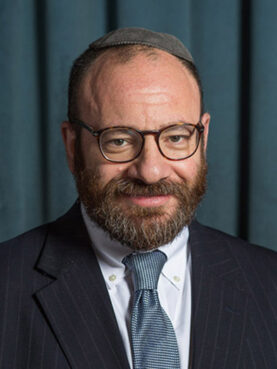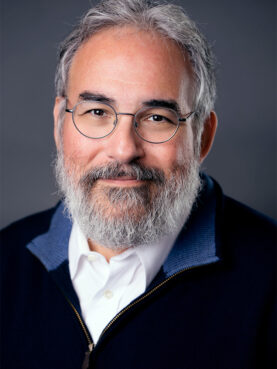(RNS) — Shortly before Israel’s new right-wing government was sworn in late December, Rabbi Jeremy Kalmanofsky of New York’s Ansche Chesed Synagogue penned a blog post on the congregation’s website.
“This government is beyond awful,” he wrote. “It deserves whatever small protest we can offer from afar.”
He then proposed his own. He would stop saying the Prayer for the State of Israel in the Saturday morning liturgy and replace it with Psalm 122, which includes the phrase, “Pray for the peace of Jerusalem.”
Kalmanofsky made clear he was not protesting Zionism, to which he said he is still committed, but Israel’s newly sworn-in coalition government that includes cabinet members whom he described as Jewish supremacists, fascists and racists.
Several, in fact, have criminal convictions and have made plain their desire to restrict the rights of minorities, weaken the judiciary, allow for harsher treatment of Palestinians and Israeli Arabs and expand the settlements in the occupied West Bank.

Rabbi Jeremy Kalmanofsky. Photo courtesy Ansche Chesed Synagogue
Kalmanofsky’s small protest gained headlines in “The Forward” and has since led to the resignation of one of the synagogue’s board members and at least one other synagogue member.
But mostly his 650-family Conservative congregation has welcomed the change. “It’s been overwhelmingly positive,” he said in a phone call.
Many American Jews are outraged by Israel’s new government and its anti-democratic leanings, which run contrary to their liberal Jewish values. In the past month, at least three petitions with hundreds of signatures have emerged, each criticizing the new government of Prime Minister Benjamin Netanyahu and what many see as its potentially authoritarian bent.
“Even rabbis who don’t usually take risks to speak about Israel, occupation and democracy are taking a few more risks,” noted Rabbi Jill Jacobs, CEO of T’ruah: The Rabbinic Call for Human Rights.
In one petition, days after Israel’s government was sworn in, hundreds of rabbis pledged to block the most extreme Israeli cabinet members from speaking in their congregations or organizations.
RELATED: Hundreds of US rabbis protest new Israeli government in public letter
Then came a letter from a group of 134 Israeli and U.S. historians castigating the new government, saying Israel has never faced a graver political crisis.
And on Wednesday (Feb. 1), 185 Jewish leaders called on Congress not to conflate criticism of Israel with antisemitism:
“Our criticisms emanate from a love for Israel and a steadfast support for its security and well-being,” said the statement. “Some will try to dismiss their validity by labeling them antisemitic.” Instead, the statement said, the criticisms “reflect a real concern that the new government’s direction mirrors anti-democratic trends that we see arising elsewhere.”
Among the signers was a wide swath of Conservative and Reform rabbis as well as several retired Jewish institutional leaders. They included Rabbi David Saperstein, former ambassador-at-large for International Religious Freedom and former Wisconsin Sen. Russell Feingold.
This round of hand-wringing among Israel’s strong supporters is new. While younger U.S. Jews have steadily grown alienated from Israel, older generations have until recently been more circumspect in their criticism.
But their anxiety is starting to show.
“They’re now forced to make a choice between support for Israel and the liberal principles that underlie their own, and roughly 70% of American Jews’ values and politics,” said Eric Alterman, a historian and the author of “We Are Not One: A History of America’s Fight Over Israel” (2022). “It’s a very difficult choice.”

Rabbi Brad Hirschfield. Courtesy photo
For some, it’s still too soon to judge Israel’s government. Especially from far away.
“My experience is that in moments of pain we tend not to make the best decisions,” said Rabbi Brad Hirschfield, president of the National Jewish Center for Learning and Leadership. “I appreciate the pain people are feeling about the current government if it doesn’t reflect their views. But I know my love for Israel is bigger than any particular outcome.”
There has not been a rush to quit the prayer for Israel, recited alongside “A Prayer for Our Country” after the Torah reading on Shabbat mornings.
Written in 1948 by Israel’s chief rabbi, and perhaps others, the prayer has been a mainstay of Reform, Conservative, Reconstructionist and many modern Orthodox prayerbooks. (Haredi Jews, some of which are not Zionists, do not recite it.)
But nearly all the liberal Jewish denominations have abridged or revised it in various ways.
For Kalmanofsky, its still troubling, especially two sentences in which Jews pray for Israel’s government: “Guide its leaders and advisors with Your light and Your truth. Help them with Your good counsel.”
“If I was praying God send them light and guidance, that would mean I would mentally reinterpret the prayer to say, ‘May God send you a 100% personality transformation; may you disavow everything you ever said, may you simply be a different person,’” said Kalmanofsky. “I don’t think that’s honest.”
Since the prayer is not required by the various denominational rabbinical assemblies, it’s relatively easy for rabbis and congregational leaders to drop it.
Unlike Christianity, where Jesus commands his followers to “pray for those who persecute you,” Judaism has no equivalent commandment.
Still, few are omitting the prayer for Israel.
“Israel needs our prayers more than ever,” said Rabbi Jacob Blumenthal, CEO of the United Synagogue of Conservative Judaism and its Rabbinical Assembly — the denomination to which Kalmanofsky’s congregation belongs. “If people don’t like the traditional prayer for the State of Israel because they feel like it doesn’t speak to the moment, I would encourage them to write a new prayer that speaks to their hearts and expresses their deepest hopes for what the state of Israel should be.”
Kalmanofsky said he’s doing just that. He’s drafting his own prayer for Israel, one that better expresses what kind of society he would like Israel to be. He hopes to introduce it soon.
But in the battle between liberal Jewish values and Israel’s democratic slide, the future appears fraught. That should present a new opportunity for American Jews to forge a new understanding of their faith, its foundation and its future, said Alterman.
“Leaning on Israel for the past five decades has left very little energy for reimagining what it means to be a diaspora Jew, and American Jews haven’t paid attention to it because Israel has been a crutch,” Alterman said. “It’s a challenge to turn this big boat around. But unless that challenge is faced, there will be an enormous diminution in the commitment of American Jews to their Judaism.”
RELATED: Reconstructionist Jews call for reparations, embark on racial justice pilgrimages










